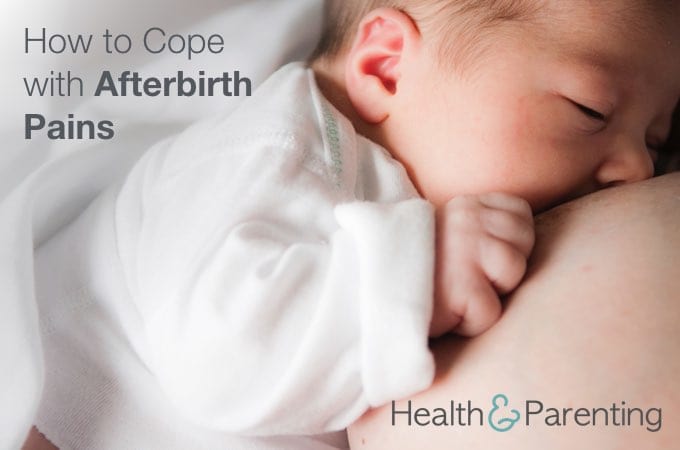You probably feel like you’ve already had more than your fair share of contractions for this month, so why are you experiencing even more when you breastfeed your baby? These contractions, known as afterbirth pains, may be uncomfortable, but they play an important role in helping your baby return to normal after the birth. During pregnancy, your uterus can go to 25 times its original size. The contractions are helping your uterus shrink back down after the birth.
Some moms don’t even notice them, but for those that do, the pains are usually pretty mild after a first baby. Afterbirth pains are typically worst for second-time moms and are thought to be more painful after each subsequent birth. It can take up to six weeks for your uterus to shrink back down to its pre-pregnancy size though most moms don’t feel cramps for that long. For the first couple of days, however, afterbirth pains can feel pretty intense.
The cramps are caused by the love hormone oxytocin, and many moms find the pains appear or worsen during breastfeeds. This is because breastfeeding stimulates oxytocin production, allowing you to bond with your baby, and this can kick start the contractions.
How to cope with afterbirth pains
- go to the bathroom – a full bladder can restrict uterine contractions, and this can worsen the cramps. Be sure to empty your bladder frequently for the first few days after the birth as this could reduce any discomfort caused by afterbirth pains.
- deep breathing – just as you used breathing techniques to deal with contraction pain during labor, you can rely on these to help you through afterbirth contractions as well.
- apply gentle heat – if your healthcare provider gives you the ok, you can use heat to relieve discomfort during contractions. A warm compress or hot water bottle applied to the area can reduce the pain.
- massage – gently massaging your lower abdomen may help to relieve some of the discomfort during contractions.
- pain relief – if the above tips don’t help, over the counter pain medication may help to take the edge off. Speak to your pharmacist to find out which pain relief options are safe to take when breastfeeding.
When to seek help
If the pain is unbearable and doesn’t reduce after a few days, it could be a sign of an infection. Contact your healthcare provider for advice if you think this could be the case. Most women find that the contractions are less noticeable after just a few days, if yours aren’t, talk to your healthcare provider.
Written by Fiona (@Fiona_Peacock), mother, writer and lover of all things baby related.
This information is not intended to replace the advice of a trained medical doctor. Health & Parenting Ltd disclaims any liability for the decisions you make based on this information, which is provided to you on a general information basis only and not as a substitute for personalized medical advice. All contents copyright © Health & Parenting Ltd 2016. All rights reserved.










